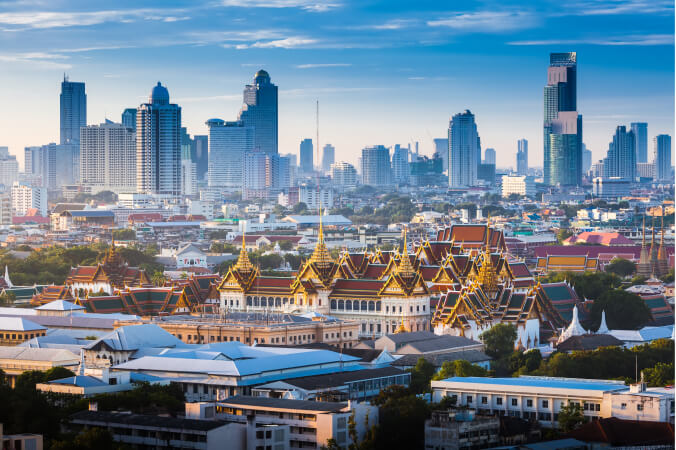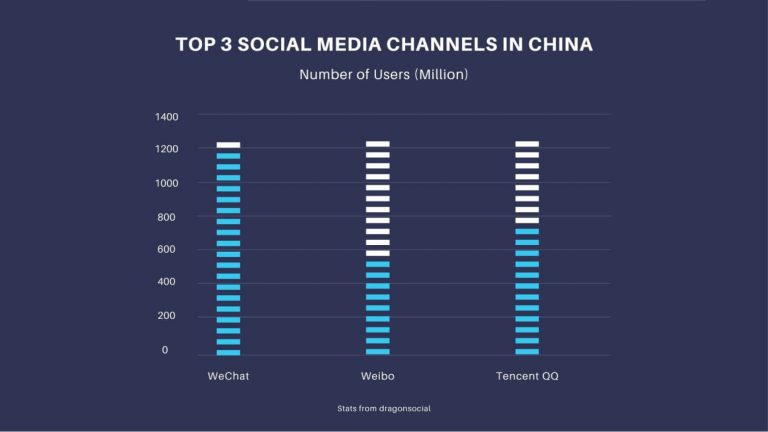
5 Ways To Boost Guest Experience for Hotels in Bangkok
A New Normal For Bangkok’s Hotel Industry
With Thailand’s borders projected to fully open in July 2022, the tourism sector is projected towards a forward-looking recovery after contractions in 2020 and slow growths in 2021 due to the coronavirus.
Among the shift towards a post-pandemic new normal, there have been changes in the habitual lifestyles of guests. Never before has there been such a drastic move towards digital services incorporated into our daily lives.
As Bangkok starts to see an increase in international tourist arrivals, hoteliers should be looking out for these new trends from both domestic and foreign guests to understand what they are looking out for when making decisions on accommodations. These would ensure an improvement in guest satisfaction, leading to an overall increase in guest expenses within the hotel.
1. A Digital Guest Experience
The pandemic has sparked an ever-growing concern by guests for their health and safety. This places an emphasis for an integration of contactless technologies into daily operations to reduce risk of transmission. Not only that, as guests become more tech-savvy, a digital mode can increase guest confidence in their travels, as well as enabling more convenience during their Bangkok adventures. Here are some ways that hotels can digitalise the experience for their guests:
- Contactless Check-in
- Guest Communications Platform
With automation taking care of simple services, the need for manual responding is removed and your call centre will save valuable man-hours to be re-channeled to create a more unforgettable stay.
- Social Media Engagement
It is also important to note the key demographics of the hotel to focus on your engagements with guests. For example, let’s take stats from 2019 for Thailand – The top 2 tourist nationalists coming into Thailand are from China and Malaysia. If your hotel’s key demographic is Chinese, you might want to focus your social engagements on WeChat, as it is currently the most used social media platform in China. WeChat has over 1 billion monthly active users, as such, it is one of the most popular choices for hotels looking to drive more awareness through social media engagement targeted at Chinese travellers.
2. Digital Wallets or Payment Modes
Digital wallets have started to gain traction in Thailand, with some of the most popular applications being K Plus, LINE Pay, and PayPal. While these increase the options for locals, foreigners are often left with limited options like cash or credit card for payment transactions.
Hotels can look into accepting a wider range of digital wallets that can cater to their guests. As more international travellers arrive in Thailand, a possible avenue would be accepting Apple Pay and Google Pay, two of the more popular digital wallet applications used around the world, to allow for contactless payments for your guests. Several hotel groups within Bangkok have jumped on board this trend using such digital wallets and have been welcomed by foreign guests.
3. Aligning to the Values and Lifestyles of Your Guests
Guests are now increasingly conscious of a company’s branding and its social impact. One of the key things that guests of the millennial generation are looking out for is environmental sustainability, and whether the actions of the hotel or resort are aligned with their personal values.
The physical compendiums require a lot of paper and are costly to print. Hotels can consider the use of QR codes or launch a digital compendium to replace the compendiums and go paperless. These platforms can provide the same information and getting answers to their enquiries would be quicker as well. This would help to cut costs while being in line with a more environmentally sustainable operation.
4. Adding that Personal Touch
Guests feel more connected with the guest journey when it becomes personalised for them. Hotels can go the extra mile to provide customised offerings for their guests, which is definitely more appealing to most guests. Simple acts such as remembering the names of guests when they enter facilities or taking note of particular preferences of guests can go a long way to building relationships with guests and increase guest satisfaction.
Tailoring the unique experience for every guest will boost brand loyalty and increase the chance of customer retention.
5. Upskilling and Restructuring the Workforce
Since the coronavirus pandemic, Thailand saw a loss of more than 2 million workers in the hospitality & tourism industry. As borders start to open up and demand slowly increases, hotels will need to adapt to staff shortages. Restructuring the existing workforce is crucial and necessary in ensuring that operations are running efficiently within the hotel. This can greatly aid to reduce operational costs while maximising revenue.
What should hotels do in light of this issue? There is a need to create a more skilled workforce who are really passionate to serve in the hospitality industry. This creates a happier workforce which improves staff retention and reduces turnover rates. Furthermore, high employee engagement has shown to improve guest experience.
As Bangkok approaches a post-pandemic normal, hotels will need to be in touch with the upcoming and shifting trends from their guests to provide top-quality guest experience. Learn more about Vouch to know about how we can customise the hotel’s guest experience solutions through a digital platform. Get in touch with our business development team for a demonstration!

5 Ways To Boost Guest Experience for Hotels in Bangkok
A New Normal For Bangkok’s Hotel Industry
With Thailand’s borders projected to fully open in July 2022, the tourism sector is projected towards a forward-looking recovery after contractions in 2020 and slow growths in 2021 due to the coronavirus.
Among the shift towards a post-pandemic new normal, there have been changes in the habitual lifestyles of guests. Never before has there been such a drastic move towards digital services incorporated into our daily lives.
As Bangkok starts to see an increase in international tourist arrivals, hoteliers should be looking out for these new trends from both domestic and foreign guests to understand what they are looking out for when making decisions on accommodations. These would ensure an improvement in guest satisfaction, leading to an overall increase in guest expenses within the hotel.
1. A Digital Guest Experience
The pandemic has sparked an ever-growing concern by guests for their health and safety. This places an emphasis for an integration of contactless technologies into daily operations to reduce risk of transmission. Not only that, as guests become more tech-savvy, a digital mode can increase guest confidence in their travels, as well as enabling more convenience during their Bangkok adventures. Here are some ways that hotels can digitalise the experience for their guests:
- Contactless Check-in
- Guest Communications Platform
With automation taking care of simple services, the need for manual responding is removed and your call centre will save valuable man-hours to be re-channeled to create a more unforgettable stay.
- Social Media Engagement
It is also important to note the key demographics of the hotel to focus on your engagements with guests. For example, let’s take stats from 2019 for Thailand – The top 2 tourist nationalists coming into Thailand are from China and Malaysia. If your hotel’s key demographic is Chinese, you might want to focus your social engagements on WeChat, as it is currently the most used social media platform in China. WeChat has over 1 billion monthly active users, as such, it is one of the most popular choices for hotels looking to drive more awareness through social media engagement targeted at Chinese travellers.
2. Digital Wallets or Payment Modes
Digital wallets have started to gain traction in Thailand, with some of the most popular applications being K Plus, LINE Pay, and PayPal. While these increase the options for locals, foreigners are often left with limited options like cash or credit card for payment transactions.
Hotels can look into accepting a wider range of digital wallets that can cater to their guests. As more international travellers arrive in Thailand, a possible avenue would be accepting Apple Pay and Google Pay, two of the more popular digital wallet applications used around the world, to allow for contactless payments for your guests. Several hotel groups within Bangkok have jumped on board this trend using such digital wallets and have been welcomed by foreign guests.
3. Aligning to the Values and Lifestyles of Your Guests
Guests are now increasingly conscious of a company’s branding and its social impact. One of the key things that guests of the millennial generation are looking out for is environmental sustainability, and whether the actions of the hotel or resort are aligned with their personal values.
The physical compendiums require a lot of paper and are costly to print. Hotels can consider the use of QR codes or launch a digital compendium to replace the compendiums and go paperless. These platforms can provide the same information and getting answers to their enquiries would be quicker as well. This would help to cut costs while being in line with a more environmentally sustainable operation.
4. Adding that Personal Touch
Guests feel more connected with the guest journey when it becomes personalised for them. Hotels can go the extra mile to provide customised offerings for their guests, which is definitely more appealing to most guests. Simple acts such as remembering the names of guests when they enter facilities or taking note of particular preferences of guests can go a long way to building relationships with guests and increase guest satisfaction.
Tailoring the unique experience for every guest will boost brand loyalty and increase the chance of customer retention.
5. Upskilling and Restructuring the Workforce
Since the coronavirus pandemic, Thailand saw a loss of more than 2 million workers in the hospitality & tourism industry. As borders start to open up and demand slowly increases, hotels will need to adapt to staff shortages. Restructuring the existing workforce is crucial and necessary in ensuring that operations are running efficiently within the hotel. This can greatly aid to reduce operational costs while maximising revenue.
What should hotels do in light of this issue? There is a need to create a more skilled workforce who are really passionate to serve in the hospitality industry. This creates a happier workforce which improves staff retention and reduces turnover rates. Furthermore, high employee engagement has shown to improve guest experience.
As Bangkok approaches a post-pandemic normal, hotels will need to be in touch with the upcoming and shifting trends from their guests to provide top-quality guest experience. Learn more about Vouch to know about how we can customise the hotel’s guest experience solutions through a digital platform. Get in touch with our business development team for a demonstration!



